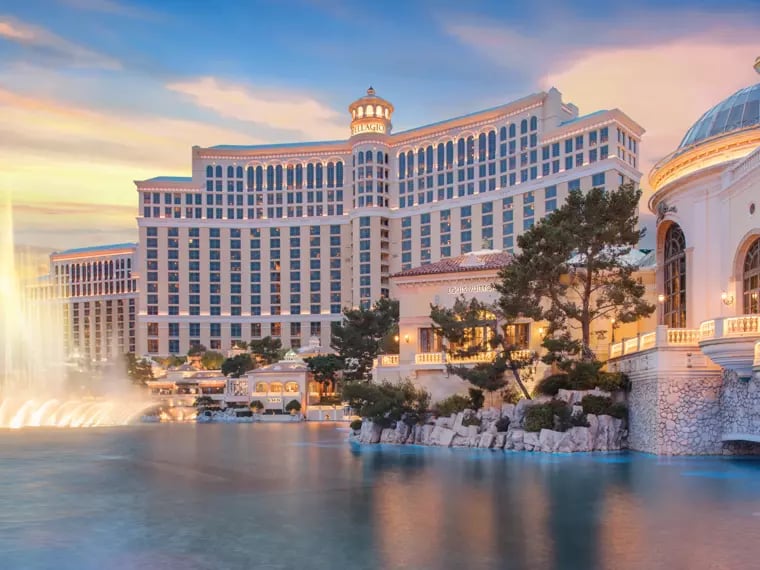It only took the legalization of sports betting to get MGM Resorts (MGM 0.15%) to discard the notion that $7 billion was enough spent on expanding its casino footprint and that it would instead focus on sprucing up what it already owned.
With the Supreme Court opening the door to a $60 billion to $70 billion opportunity, MGM is opening its wallet once more: It recently announced it was buying Empire City Casino, the operator of horse track Yonkers Raceway and a casino, for $850 million.

MGM Resorts is buying its way into the New York casino market as legal sports betting looms. Image source: Empire City Casino.
MGM will then turn around and sell the real estate to real estate investment trust MGM Growth Properties (MGP +0.00%) for $625 million, and then lease it back from the REIT. The sum includes the assumption of $245 million in debt and the issuance of operating partnership units at a price of $29.38 per unit.
Because the casino is the closest casino to New York City, just 20 miles from Times Square, it represents a big opportunity to cash in on the expected demand for legalized sports wagering.
A sporting chance
New York, of course, is home to some of the most important franchises in major league sports, including baseball's Yankees, basketball's Knicks, and football's Jets and Giants. The proximity to these fabled teams ought to heighten the potential for outsized wagering to occur on their games, more so than trying to cash in on betting on them from MGM's casino in Maryland.
Following the Supreme Court striking down as unconstitutional the Professional and Amateur Sports Protection Act of 1992, which barred states from authorizing sports gambling, MGM declared it was ready to hit the ground running with its sports book. It issued a statement saying, "Having spent decades building trust with regulators, successfully operating sports books in Nevada, and hosting the world's leading sporting events, MGM Resorts International is extremely well positioned for a post-PASPA environment."
A lot of casinos are ready for the new legalized sports betting market, and though MGM is better situated than world-class rivals Las Vegas Sands and Wynn Resorts, because they derive the lion's share of their revenue from China, it is going to face a lot of homegrown competition from the regional casino operators, who are probably best positioned to capitalize on the opportunity because they have numerous small properties located all over the country.
Off to the races
That may help explain why MGM Resorts made the Empire acquisition. Although its biggest, most profitable domestic resorts are located in Las Vegas, it does have a few casinos in other gambling locales like Atlantic City, Detroit, and Biloxi, Mississippi. It also owns the National Harbor resort in Maryland and will be opening a new resort in Springfield, Massachusetts, later this year, so this further expansion along the East Coast bolsters its presence in a valuable market.
New York legislators are reportedly looking to pass legislation before they recess on June 20 that would legalize sports betting at racetracks, off-track betting facilities, and Native American casinos. Empire City has also been desiring a full casino license that would allow it to have live table games, which ownership by MGM ought to assist with. If it does get that license, its current owners can earn $50 million of additional consideration.
Although the new sports betting market may drive a number of new acquisitions and combinations, the actual impact of legalized sports wagering is still unknown. It has, of course, been legal to bet on sports in Nevada for years, and last year was a record year for bets placed, but even so the total amounted to less than $250 million. There will naturally be more wagered as more states adopt laws to regulate it, but it may not become a major source of income for any casino.
MGM Resorts is betting New York will be a hub for sports gambling based on population density. Add in the tailwind it will get from having some of the biggest, most iconic names in sports history to showcase, and this is a wager investors just might want to take.






